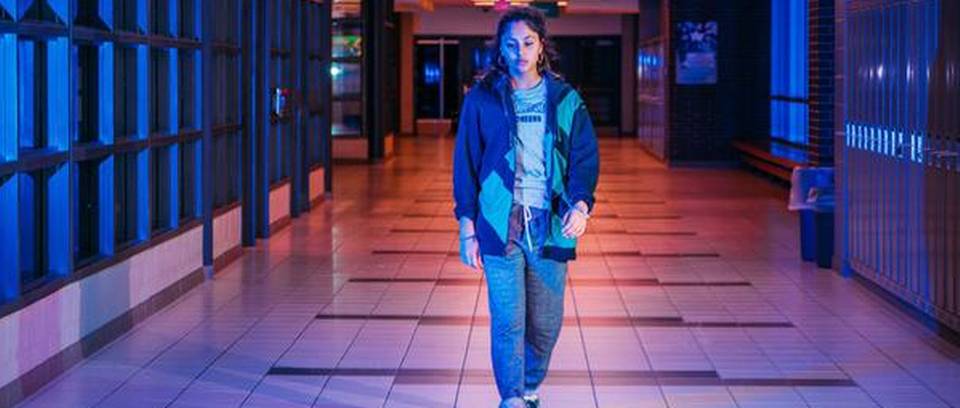By Poulomi Das
The thing about growing up as a generation that lives on the internet — under the illusion of connectivity and availability — is that the world finds out things about your life before you do. In the digital age, privacy is often discarded in favour of a public spectacle. No life experience escapes being broadcast and is, by extension, reduced to mere “content” for online consumption. Even something irreversibly traumatic such as sexual assault is routinely played up for voyeuristic clicks.
In writer-director Pippa Bianco’s immersive Share, 16-year-old high schooler Mandy (played by Rhianne Barreto) is the last person in her friend circle to find out that she may have been sexually assaulted. She comes to know of it only when her phone lights up with frantic texts from friends who share the video of the assault, having already consumed it before she has had the chance to process the violation.
The claustrophobic, disorienting recording has an unconscious Mandy — passed out from heavy drinking — lying face down on a bathroom floor while a group of male classmates cackle around her. One of them — AJ, Mandy’s crush and her date for the party — pulls her jeans down and mimics having intercourse with her when the video fades out. Even as Mandy watches her dehumanisation in horror, she has no memory of any of it: Not this video, nor how she ended up on the lawn outside her house after the party, nor the face or name of the person who dropped her home, nor the story behind the bruises on her body.
In the ensuing 87 minutes of Share, now streaming on Hotstar, Mandy learns that there are two more videos of her assault that night. But even then, she doesn’t have the complete picture: Was the extent of her assault limited to the parts that were filmed? Or did something even worse happen to her? All she has instead is her unreliable memory and even more unreliable versions of the happenings that night from the people around her. Her best friend, Jenna, guides her into believing that AJ dropped her home that night while he claims that she must have walked home because she was gone when he came to find her. Dylan, a shy, overtly nice kid, reiterates that nothing bad must have happened to Mandy — her classmates, after all, are not capable of such crimes. Who out of them should she believe, and if her abuser could be any of them, should she even believe any of them? At a time when her memory stands compromised, Mandy’s assault becomes the missing puzzle of her life; one that she desperately wants to reclaim.
So even as her parents work overtime to pursue legal recourse, get the boys suspended and work with the police to help Mandy get a better grasp of the events of the night, Share never becomes about them. Instead, Bianco manages something acutely inimitable: She deconstructs the unique complexities of modern survivorship with a sobering portrait of just how much it takes to be an assault survivor in an age where the internet doesn’t let go of the memory of you. “You are lucky in the ways that you are unlucky because there is proof”, Mandy’s mother says about the videos, while AJ, when asked why he would record his friend in that state, claims that he found it funny. As Share points out, in a generation that sells every moment of its life to an online audience, an assault victim has to suffer her violation many times over. In Mandy, Bianco gives a face to the countless victims who are stripped of the autonomy to move on. It’s presumably one of the scariest pitfalls of belonging to a generation that likes to capture, not communicate.
It’s this abject desensitisation of the younger generation that Share, which premiered at the Sundance Film Festival in January 2019, deftly dissects throughout its runtime. The aftermath of Mandy’s assault doesn’t just isolate her but also makes her so uncomfortable with the distance that she chooses to hang out with her abusers. Even as her friends, the cops, and her parents argue over the alcohol content in her system, the right way forward, or her culpability, Mandy becomes almost invisible. And by the time the film’s final reveal comes up — making Mandy’s friend circle seem more horrifying in hindsight — Bianco has long driven home the point: Technology is a form of violence.
[Poulomi Das is a film and pop culture writer based in Mumbai]






Leave A Comment
You must be logged in to post a comment.